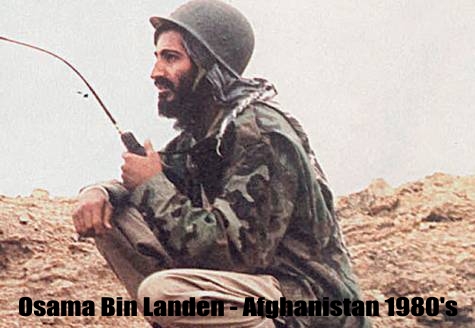NATO opens a back door to Russia's entrance to Afganistan after 25 years !
xxx | 14.11.2010 21:43 | Anti-militarism | Globalisation | World
NATO chief asks for Russian help in Afghanistan
Two decades after the Soviet Union’s retreat from Afghanistan, NATO is working to get Russia back into the country to help fight drug trafficking and rebuild Afghan security forces. The deal, championed by NATO Secretary-General Anders Fogh Rasmussen as part of a “new start in the relationship between NATO and Russia,” would see Moscow providing helicopters to Afghan and NATO forces, training Afghan national-security forces and pilots, and helping on the ground with counternarcotics programs and border security.
VIDEO back to 1988 >
 http://www.youtube.com/watch?v=5WIjUMRQPKo
http://www.youtube.com/watch?v=5WIjUMRQPKo

you know who...
Russia Back to Afghanistan
NATO chief asks for Russian help in Afghanistan
Two decades after the Soviet Union’s retreat from Afghanistan, NATO is working to get Russia back into the country to help fight drug trafficking and rebuild Afghan security forces. The deal, championed by NATO Secretary-General Anders Fogh Rasmussen as part of a “new start in the relationship between NATO and Russia,” would see Moscow providing helicopters to Afghan and NATO forces, training Afghan national-security forces and pilots, and helping on the ground with counternarcotics programs and border security. Russian President Dmitry Medvedev is due to attend a NATO summit in Lisbon next month and sign the cooperation deal —and, in the process, repair relations damaged by years of NATO expansion and Georgia's 2008 war with Osetia.
That new start comes at a hefty price, though. In return for cooperation in Afghanistan, Moscow is asking for substantial concessions from NATO. A draft agreement on NATO-Russian cooperation penned by the Kremlin and released last December includes proposed restrictions on NATO deployment of any force bigger than a 3,000-strong brigade in the combined territory of all former Soviet bloc members. Russia is also demanding that NATO not attempt to station more than 24 aircraft in Eastern Europe for more than 42 days a year. Most controversially, Russia also has demanded veto power on any Western military deployments of large additional forces anywhere in Central Europe, the Balkans, or the Baltics. To top off the wish list, the Kremlin wants limits lifted on Russian troops in the breakaway enclaves of South Ossetia and Abkhazia.
It’s unlikely that Medvedev will get everything he wants. But even if he settles for less, cooperation with NATO is still a win-win situation for Russia. “NATO is the real power in Afghanistan, and is defending our southern border for us,” says Mikhail Margelov, head of the Foreign Affairs Committee of Russia’s Upper House of Parliament. “However negative opinion may be in Russia, everybody admits that by fighting terrorism, NATO has been solving our own security issues since 2001.” A NATO failure in Afghanistan would also risk “spilling over the border and destabilizing Central Asia,” says Dmitri Trenin, director of the Carnegie Moscow Center—and therefore Russia’s agenda is “to bring relations with NATO out of the danger zone and put them on a constructive level.”
What’s less clear is what’s in it for NATO. Partly, the West’s Afghanistan endgame will have a better chance of succeeding if Moscow is an ally rather than an enemy—especially since Russia has the power to obstruct NATO logistics in Central Asia. But on a broader level, Rasmussen is eager to reset relations with Moscow to put an end to continued bickering within the organization between pro-Russian Germany and France and many newer NATO states that remain deeply suspicious of Moscow. The deal, if it happens, will be an important symbolic step —but it ultimately won’t change much on the ground. Moscow is keen to make friends in the Afghan government and get involved in lucrative development and mineral-extraction deals after an eventual NATO withdrawal. Dmitry Rogozin, Russia’s ambassador to NATO, was quick to reassure Kabul that Russia was not planning to step into the Afghan quagmire a second time. “Maybe someone wants Russia to supply cannon fodder to Afghanistan,” says Rogozin. “But we’ve already been in Afghanistan and we didn’t like it much.” Afghan pilots will be trained outside the country, he says, while Defense Minister Anatoly Serdyukov insists that no Russian troops will fight alongside NATO. At the same time, to placate NATO, Russia has been quietly sealing bilateral deals with France, Germany, Spain, and the U.S. to allow the transit of arms, military equipment, and soldiers to Afghanistan through Russian airspace.
A reset of relations between Russia and NATO would be a welcome end to years of brinkmanship and hostility between the two parties. But if it comes at the price of hobbling NATO’s ability to defend its most vulnerable easternmost members, and gives Russia a free hand in its own backyard, some may question whether the cost defeats the purpose of being in NATO at all. >
 http://www.youtube.com/watch?v=5WIjUMRQPKo
http://www.youtube.com/watch?v=5WIjUMRQPKo
xxx
 Homepage:
http://13571113.blogspot.com/2010/11/back-to-afghanistan-ex-20.html
Homepage:
http://13571113.blogspot.com/2010/11/back-to-afghanistan-ex-20.html